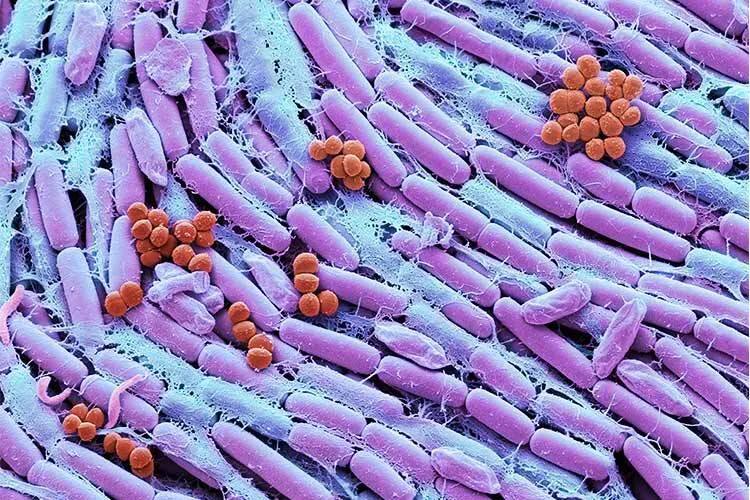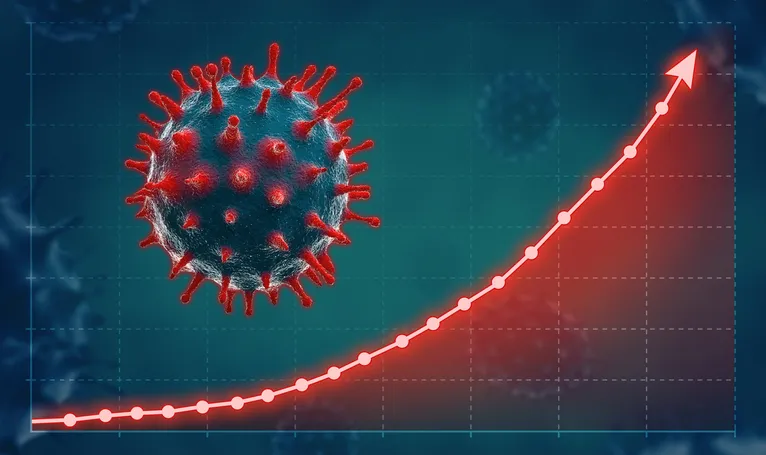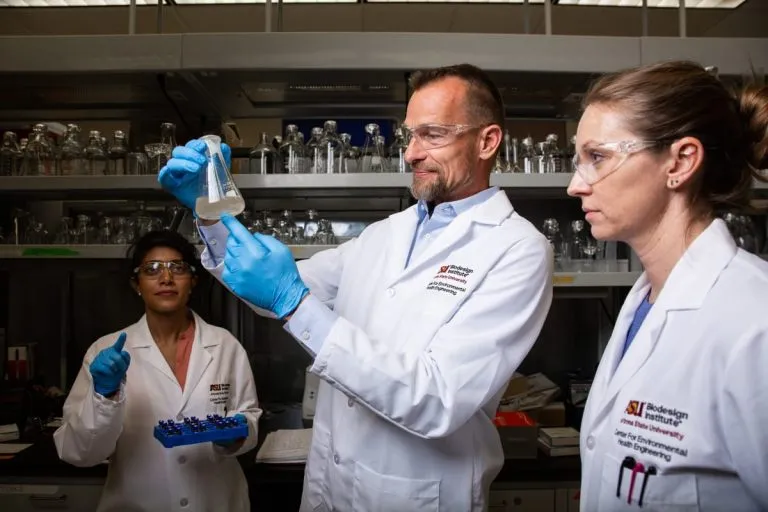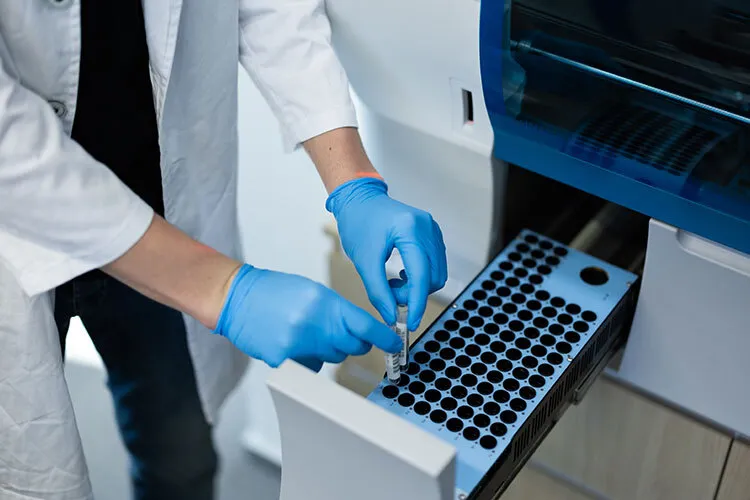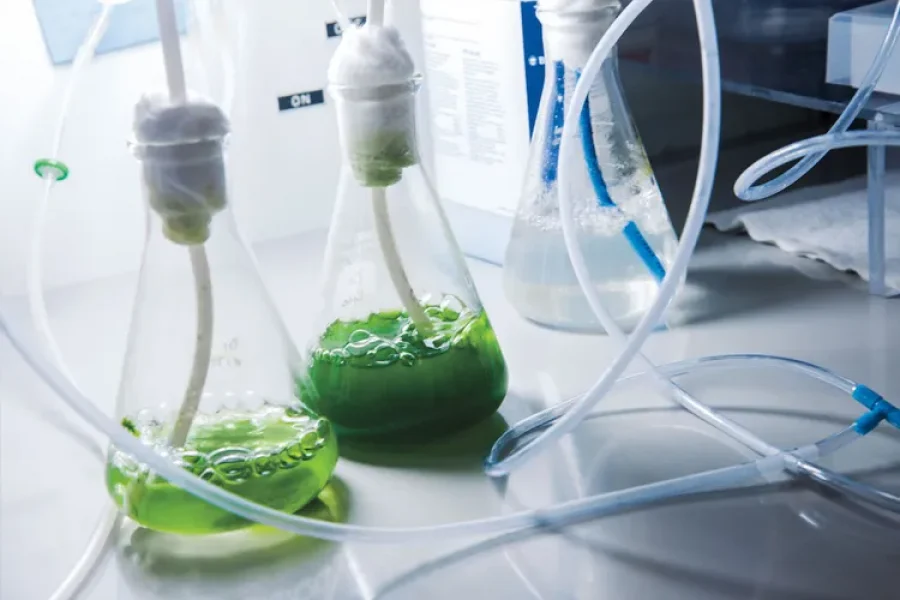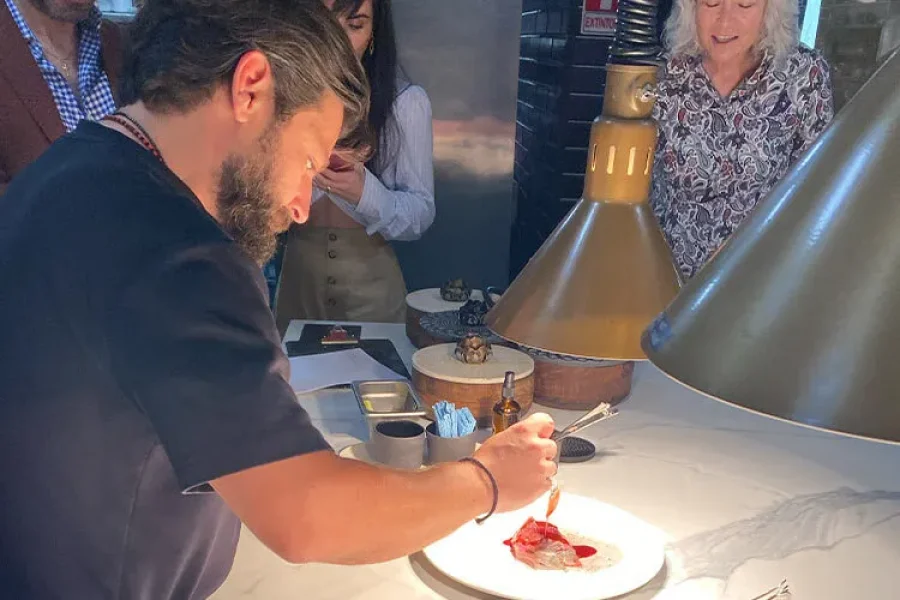Six years ago, Marion Brunck’s world changed when she breastfed her baby for the first time.
As a scientist and a mom, the experience had a profound impact on her, leading her to want to know more about the importance of breast milk and how it can protect babies.
Today, she leads a line of research that examines the relationship between this food and active immunity (which occurs after an infection or a vaccine) in babies.
“It was the beginning of studies on this topic and I wasn’t satisfied with what I found,” she says in an interview with TecScience. “I realized that there might be a gap, so I began a professional –and personal– quest to find more answers.”

“It’s very difficult to be a mother nowadays: you’re under a lot of pressure, you need to be productive, and you also need to be the perfect mother. But no one’s perfect,” she says. (Photo: Udell Jiménez / TecScience)
Benefits of breast milk
Marion Brunck is a research professor at Tecnológico de Monterrey who conducts her investigations at the Femsa Biotechnology Center. In recent years, her work has also focused on changes in the breast milk of mothers with obesity.
Within the scientific community, the relationship between breast milk and passive immunity –which occurs when someone receives antibodies instead of producing them in their immune system– has been well-defined for some time.
We know that breast milk allows the mother to pass on the antibodies her body has acquired from fighting off past infections or receiving a vaccine. Also, there is evidence that those children who were breastfed are more resistant to disease than those who weren’t.
For example, in premature babies when the mother was unable to breastfeed, there is an increased incidence of gastrointestinal infections and necrotizing enterocolitis, a disease in newborns in which intestinal tissue dies.
However, little is known about the relationship between breast milk and active immunity in babies.
Personalized medicine
Brunck and her team have also examined the relationship between the mother’s microbiota, breast milk, and the baby’s microbiota.
The microbiota is the set of microorganisms that live in symbiosis with us, colonizing our skin, digestive system, and genitals to help us create a barrier to fight infections. There are studies that suggest that 70% of our immune system depends on the microbiota.
Brunck and her colleagues have found that the profile of these microorganisms in mothers is similar to that of the baby.
According to the researcher, this suggests that the mother’s microbiota seeds the profile that the baby will have when the newborn is at its most vulnerable and physically immature stage.
“Later on, environmental components come in that also play an important role in establishing the baby’s microbiota,” she explains.
The relationship between the microbiome and the immune system is well established and it is known that there is a close relationship between the two.
The contributions of Brunck and her team, as well as that of other groups of scientists who focus on this liquid, mean we are learning more about its profound importance. We now know that, in addition to containing water necessary for hydration and nutrients for food, it also contains microbiota and multiple cells of the immune system.
“Breast milk is liquid gold for babies,” she says, “It’s personalized nutrition and medicine, created specifically for them.”
In their research on the changes that occur in the colostrum –the first milk produced when the baby is a newborn– from mothers with obesity, they found a decrease in B lymphocytes, which are the cells that produce antibodies, and an increase in a specific subtype of B cells that cause inflammation in the body.
Brunck emphasizes that this information is not intended to stigmatize or criticize mothers living with obesity. Rather, the idea is to find answers about how much their immune status is manifested in breast milk and how this impacts the baby.
“It’s not a call in any shape or form for mothers with obesity to stop breastfeeding their children,” she says.
Breastfeeding without pressure
For Brunck, all this information reinforces the idea that breast milk is essential for the development of newborns and that it has long-term impacts, but it is important that this knowledge is not used to put more pressure on mothers.
“It’s very difficult to be a mother nowadays: you’re under a lot of pressure, you need to be productive, you need to work, and you also need to be the perfect mother. But no one’s perfect,” she says.
The most important thing is that the baby is fed and the ideal food source is breast milk. The longer you can breastfeed, the better.
The World Health Organization (WHO) recommends −at least− six months when the baby feeds exclusively on breast milk, but sometimes this gets complicated.
“If breastfeeding isn’t possible for some reason, because of postpartum depression or hormonal or other complications, you don’t have to beat yourself up about it: you can give your baby formula and he or she will be fine.”
Regarding the quality of milk, Brunck recommends an active life and a balanced diet, with fruits and vegetables and as few processed foods as possible, in addition to drinking lots and lots of water.
For moms who work outside their home, storing milk is a good alternative. When Brunck had to work, she learned the trick of looking at a picture of her baby and drinking lots of water while she pumped, to visually stimulate her brain and increase milk production. “It’s a matter of finding a balance and that balance is going to be very specific to each family,” she says.
